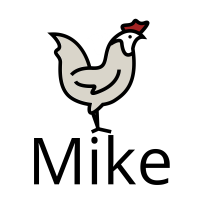For me, it may be that the toilet paper roll needs to have the open end away from the wall. I don’t want to reach under the roll to take a piece! That’s ludicrous!
That or my recent addiction to correcting people when they use “less” when they should use “fewer”


The word “literally” has been forever ruined by people who use it to mean “figuratively.” Worse, there is now literally no way to actually convey the original meaning of the word “literally” in a concise, clear way.
You have to say something like, “A is literally 10 times bigger than B…and I mean that ACTUALLY literally.” And then people will STILL assume that you’re speaking figuratively.
Try using “precisely” or “roughly” where applicable. It lets people know you’re talking about firm realities and aren’t using hyperbole.
It’s a stupid, imperfect workaround and I hate that it’s necessary, but it’s the best we have for a decade or three until people stop bastardizing “literally”.
Right with ya. I literally refuse to use the word when I mean figuratively.
Wait are you being literal right now? Like, actually??
Yes. And by actually, I of course mean facetiously, because language changes.
Literally can mean literally ( My girlfriend literally stabbed me in the back. I’m bleeding out and need an ambulance. )
It can also mean emphatically ( My girlfriend stabbed me in the back. She emptied my bank account, shot my dog and left town with my best friend. )
I won’t use it in the latter way, and will sometimes use the adjective proverbial ( proverbially ) if my metaphor could be plausibly read as literal. ( I could drive to Maryland and assassinate Supreme Court Associate Justice Brett Kavanaugh for a fresh cruller right now. )
There literally-literally is.
And to over-egg that particular
puddingpoint, word doubling might be a common thing in “simpler” languages and, ahem, pooh-poohed in “complex” ones, but that second “literally” restores the original meaning.For now.
Until some bright spark starts using “literally literally” to mean “figuratively” anyway.
That’s how language works.
Many words shifted meaning over time, some gained connotation, some lost it, some turned to something completely different.
Just look at the word “gay”, it shifted from “happy” to “haha homosexuals are outwardly happy, so we call them gay semi-ironically” to “homosexual”. The homophobic connotation was added, then the original meaning got lost.
You can complain, sure, but just read an old text from the 17th century and try to find a sentence that means exactly the same today as it did back then.
I’m fine with language evolving; my issue is that there used to be a word that succinctly conveyed a particular idea, and now there is no way to concisely convey that idea in English.
“Gay” changing its meaning isn’t the same thing, because there are still plenty of ways of saying “happy” in English.
I never called things “gay” growing up, I found it disparaging and offensive.
I came out as queer in my 20s. Now I ironically say “shit’s gay” and stuff like that all the time hahaha
“That’s our word”
It’s like an angel getting its wings, except with my first same-sex experience I got the card.